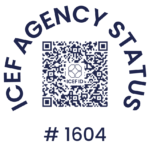Advanced Research Skills: This module prepares you to conduct your independent research project by seeking to develop the advanced skills required to conduct and communicate original postgraduate research.
This encompasses best practices in locating primary and secondary sources independently, appropriate use of online databases and archives, research ethics, citational and bibliographical practice. It’ll also include in-depth training in key methods for research in global cultures, including critical analysis of texts and sources in a variety of media (textual; visual; audio; audio-visual; digital).
Research Project Design: This module will guide you through selecting and defining the scope of your Independent Research Project. It aims to develop the essential skills for research in arts and humanities, including the design of a relevant proposal and how to select, review, synthesise, and integrate information and data into your proposal.
You’ll be encouraged to develop advanced analytical skills by challenging, interpreting, and exploring views and perspectives of a given topic related to global cultures.
Independent Research Project: Guided by an experienced supervisor, you’ll carry out independent research on a topic of your own choosing, pursuing your interests in greater depth. In the past, for example, projects have covered:
- Diversity and inclusion practices in Hong Kong education institutions.
- Systemic racism in the handling of missing and murdered Black and Indigenous women and girls in the US police force.
- The role of racism in the police practices in Canada.
- The intersection of migration policies with gender and racial inequalities.
- Decolonisation in cultural heritage practices.
- Affirmative action for gender equality in Japan.
- Diversity and inclusion (D&I) practices with a focus on gender in Latin America.
- The impact of D&I practices in graduate recruitment in the legal sector.








